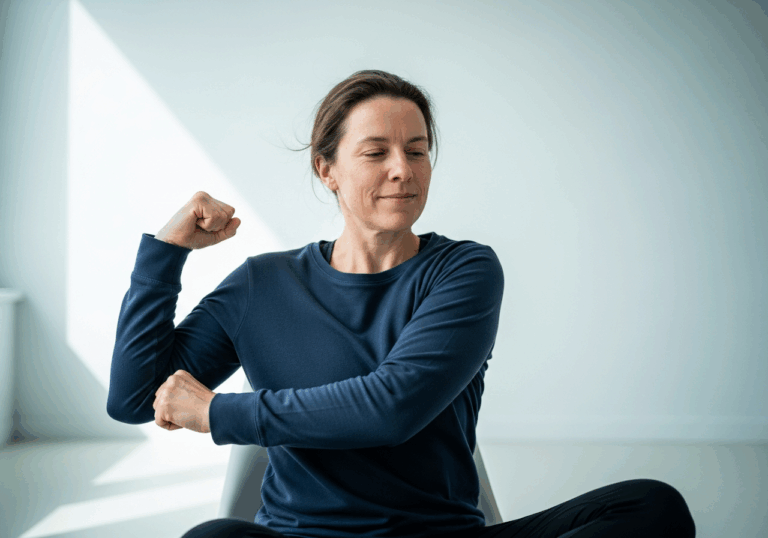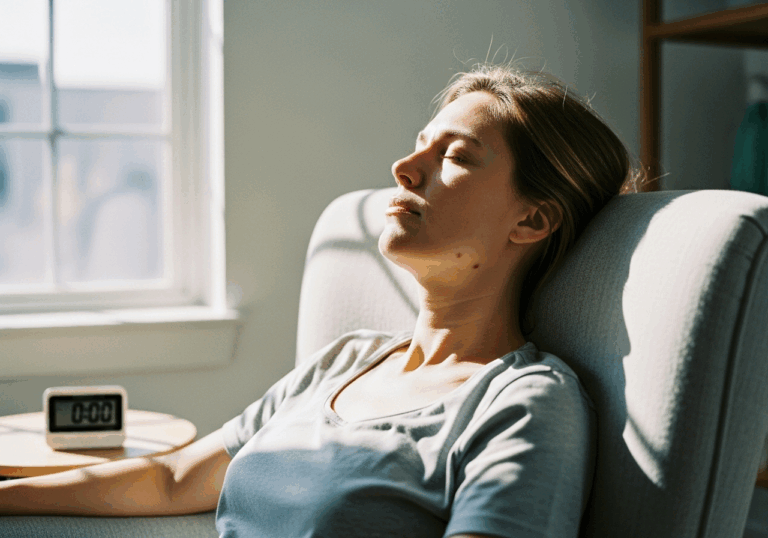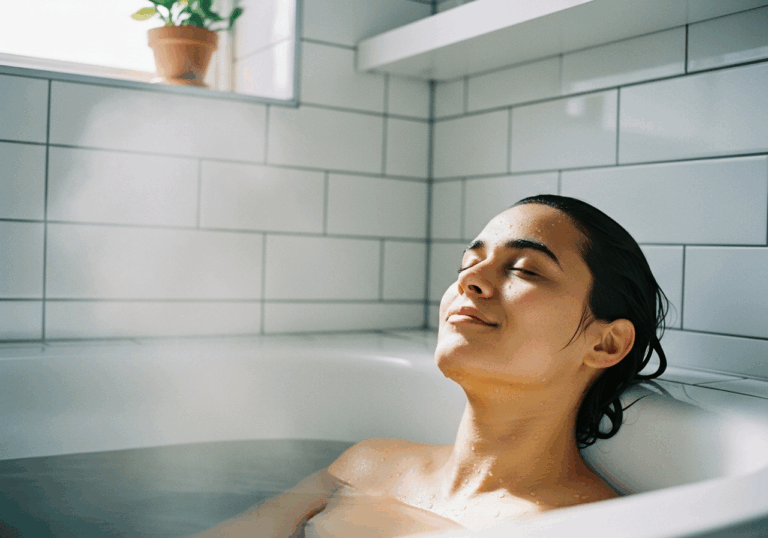Science-Backed Tips
Enhance Sleep Quality with Progressive Muscle Relaxation
Daily PMR improves sleep scores by 15% in 8 weeks.
📊 Did you know?
💡 Why It Matters
1️⃣
Improved sleep quality can reduce fatigue, enhancing daily functioning.
2️⃣
Better sleep is linked to improved mood and mental health outcomes.
3️⃣
Enhanced sleep quality may lead to decreased healthcare costs associated with sleep disorders.
✅ Try These Micro-Tips
🎯
Practice PMR for 20 minutes daily to improve sleep quality.
🎯
Incorporate deep breathing exercises during PMR sessions.
🎯
Create a calming bedtime routine to complement PMR.
🎯
Track your PSQI scores weekly to monitor progress.
📚 The study
The randomized controlled trial spanned eight weeks, comparing daily PMR sessions with usual care.
The results were promising, revealing that participants who practiced PMR experienced an impressive 15% improvement in their Pittsburgh Sleep Quality Index (PSQI) scores by the end of the study.
This enhancement in sleep quality is not just a number; it translates into tangible benefits for patients, such as reduced fatigue and improved mood.
Better sleep can significantly enhance daily functioning, allowing individuals to engage more fully in their lives.
Furthermore, improved sleep quality is closely linked to better mental health outcomes, which is crucial for those facing the challenges of chronic illness.
By addressing sleep disorders, we may also see a decrease in healthcare costs associated with these issues.
This study highlights the importance of integrating simple yet effective techniques like PMR into the care regimen of hemodialysis patients, paving the way for a holistic approach to health and well-being.
❓ Frequently Asked Questions ❓
Learn more
What is PMR?
PMR stands for Progressive Muscle Relaxation, a technique that involves tensing and then relaxing different muscle groups. It is used to reduce stress and improve overall well-being, including sleep quality.
How does PMR improve sleep quality?
PMR helps to reduce muscle tension and promote relaxation, which can lead to better sleep quality. By practicing PMR, individuals may experience decreased sleep-related distress and improved subjective sleep scores.
What were the results of the study on PMR and sleep quality?
The study found that using PMR daily over 8 weeks improved PSQI global sleep scores by approximately 15%. This improvement was significant compared to the control group receiving usual care.
How long should I practice PMR each day?
It is recommended to practice PMR for 20 minutes daily to achieve the best results in improving sleep quality. Consistency is key to experiencing the benefits of this relaxation technique.
Can PMR help with mood enhancement?
Yes, improved sleep quality from PMR can lead to enhanced mood and reduced fatigue. Better sleep is linked to improved mental health outcomes, making PMR a valuable tool for emotional well-being.
What is the PSQI?
The Pittsburgh Sleep Quality Index (PSQI) is a standardized questionnaire used to measure sleep quality and disturbances over a one-month period. It provides a global sleep score that helps assess overall sleep health.
How can I track my progress with PMR?
You can track your progress by monitoring your PSQI scores weekly to see improvements in your sleep quality. Keeping a journal of your PMR practice and sleep patterns can also be beneficial.
What additional techniques can I use with PMR?
Incorporating deep breathing exercises during PMR sessions can enhance relaxation and effectiveness. Additionally, creating a calming bedtime routine can complement PMR and further improve sleep quality.
What are the potential healthcare cost benefits of improved sleep?
Enhanced sleep quality may lead to decreased healthcare costs associated with sleep disorders and related health issues. Better sleep can reduce the need for medical interventions and improve overall health outcomes.
Is PMR suitable for everyone?
PMR is generally safe and can be beneficial for many individuals, but those with certain medical conditions should consult a healthcare professional before starting. It is important to ensure that the technique is appropriate for your specific health needs.





